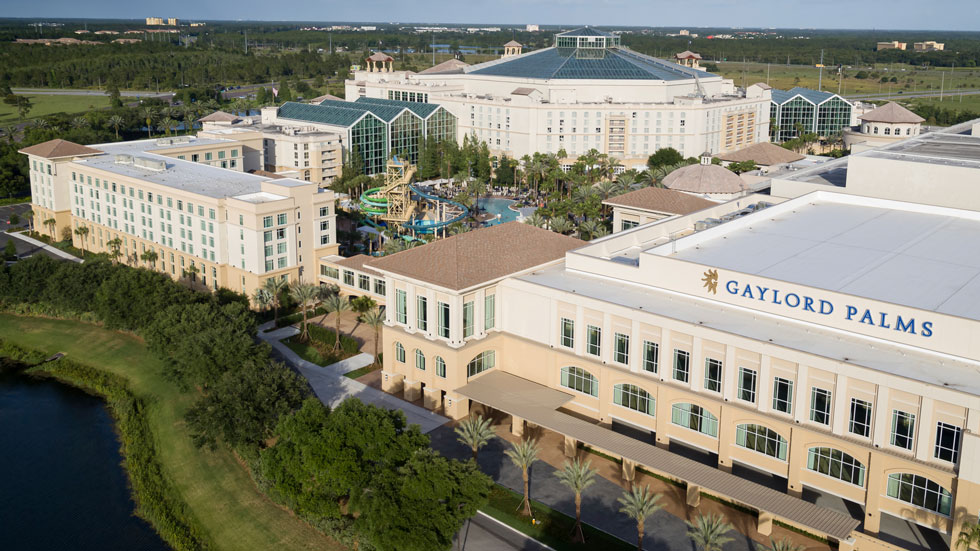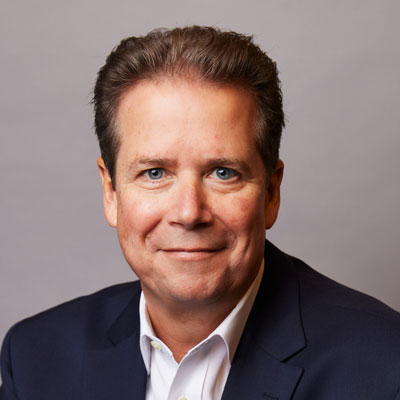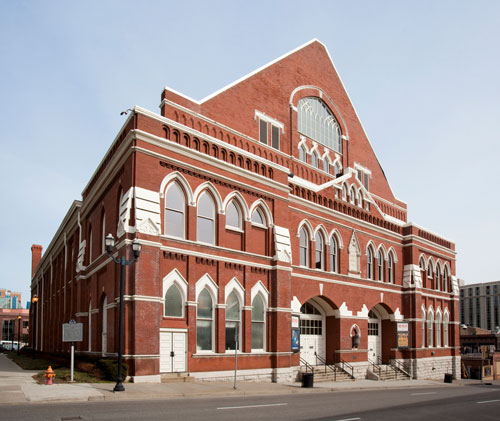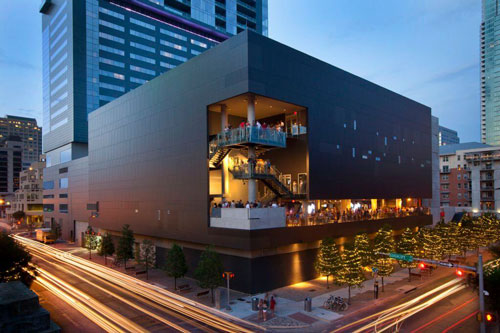The popularity of the country music lifestyle experience is not only enduring but expanding, and Ryman Hospitality Properties, Inc.’s (NYSE: RHP) new President and CEO Mark Fioravanti is confident the REIT’s strategic moves on the entertainment side of the business will deepen its commitment to country music fans and extend its reach to new markets.
Nashville-based Ryman also specializes in upscale convention center resorts and Fioravanti says the REIT has worked hard in recent years to enhance facilities and expand leisure offerings, while also strengthening relationships with group customers.
Fioravanti was promoted to CEO in January, succeeding Colin Reed who was CEO for more than 21 years and is now Ryman’s executive chairman. Reed originally recruited Fioravanti in 2002 to oversee marketing as Ryman worked to strengthen the appeal and reach of its Gaylord Hotels brand. Fioravanti became CFO in 2009 after helping Ryman successfully navigate the 2008 financial crisis. As CFO, he played a key role in Ryman’s 2012 REIT conversion. He was named president in 2015 and a board member in March 2022.
When Ryman announced the leadership transition in October 2022, Reed noted that after working with Fioravanti for over 20 years and “navigating many twists and turns along the way, I am confident he is uniquely qualified to lead this company and to ensure the momentum we have created over the past two decades continues.”
Fioravanti spoke to REIT.com about how he sees Ryman continuing to evolve as a leader in convention center resorts and within the country music scene, what Ryman has learned from past crises, the importance of mentoring, and more.
What do you see as your main priorities as the company moves into the next phase of growth?
We'll continue with the same deep commitment we have to our people. All of our brands have a people first philosophy that allows us to attract and retain top talent as well as serve our very loyal customers. You'll continue to see us be very disciplined in terms of capital deployment, making high return investments in both our businesses and continuing to drive shareholder returns.
Why do you think country music has such widespread and enduring appeal?
Country music is one of the fastest growing musical genres in the United States and increasingly around the world. If you look at the demographics, the fan base is becoming younger and more diverse. I think the appeal of country music is that, at its essence, it’s storytelling and that's something that everybody can relate to. There's an old saying that country music is ”three chords and the truth,“ and that's what makes it so appealing.
How has Ryman been able to extract lessons from past crises, including the COVID-19 pandemic?
We've navigated a number of crises over the years. Whether it was the 2008 financial crisis, the 2010 Nashville flood, or the global pandemic. The number one lesson that we've taken away is that each time after we've stabilized the businesses, both operationally and financially, we've very quickly pivoted to consider the opportunities the situation creates.
During COVID-19, we shut down all of our businesses and immediately went to work with Marriott on the hotel side to restructure components of the business that we couldn't otherwise do when they were operating, to improve long-term margins.
We also made the decision early in the pandemic to retain the sales force at all of our hotels and work with our group customers to ensure that their cancellations and rebookings occurred. Our customers were in the same situation as we were; that investment not only strengthened the relationship that we have with the group customer, it also allowed us to rebook nearly 70% of room nights that were canceled because of the pandemic. We emerged from COVID with a much stronger book of group business that allowed us to recover much quicker than many other hotel businesses.
Lastly, we continued to invest capital through the pandemic. We took the opportunity to finish our expansion at the Gaylord Palms in Florida and made major renovations at Gaylord National in terms of rooms product, and food and beverage so that when we reopened, we were in a better competitive position with new offerings, creating more value for our customers.
How do you see Ryman’s musical brands evolving?
We're fortunate in that we are the stewards of two of the most iconic brands in country music, the 130-year-old Ryman Auditorium, which is the mother church of country music, and the show that made country music famous, the 98-year-old Grand Ole Opry.
When you think about these brands and their legendary connection to country music fans and the artist community, it puts us in a really unique position to create one-of-a-kind content and live entertainment experiences that really connects those artists and fans in many different ways.
That's really what we've been focused on, how do we deepen that relationship with the music fan and how do we expand our reach with new entertainment experiences, whether that's Ole Red locations outside of Nashville, Block 21 in Austin, Texas, or the media network Circle that we launched with Gray Television, Inc.
Do you see potential for extending Ryman’s reach even more?
We’ve created a company that continues to have a stronger and stronger connection to fans and artists and offer things that others can’t in this very specific niche of country music. With our new strategic partner, investment firm Atairos and its partner NBCUniversal [which purchased a 30% stake in Opry Entertainment Group, the entertainment arm of Ryman], we think we have an opportunity to take our business and really create a global country music and entertainment platform to service Europe, Australia, and other parts of the globe where country music is popular or is becoming discovered.
What are some of the steps Ryman has taken in terms of upgrading its facilities?
Over the last five years, we've invested about $2 billion of growth capital in our hotel and entertainment businesses. As we look forward, we'll continue to deploy growth capital. We see that as an opportunity to strengthen our competitive position in the hotel business.
We're making those investments to serve group customers as well as leisure guests. I think what you'll see in the near term is more investments in food and beverage and leisure pool amenities, which drive occupancy and rates, but also drive outside-the-room spending.
One of the unique things about our hotel model is that they're these large convention resorts that have an all-under-one-roof offering. We generate about 60% of our revenue from outside-the-room, whether it's food and beverage, retail, spa, et cetera. It's a very powerful part of our economic engine.
Do you think group travel has turned a corner?
We saw a rapid recovery of group travel throughout 2022 and last August our group room nights exceeded 2019 levels. As we look at group business currently and our forward book of business, it's very encouraging in terms of occupancy and rates. I think organizations very quickly realized that a virtual meeting is not a substitute for an in-person meeting. If you want to bring a team or a large group of people together to talk about strategy, to celebrate, to network, you really can't do that via Zoom, particularly when you're talking about groups of 500 to 1,000 participants.
From a supply perspective, we’re in a very enviable position. Post pandemic, when you add in rising interest rates and inflation of construction costs, developing new, large convention resorts has only become more difficult.
Is there a close relationship between group and leisure rates?
We're trying to maximize our overall yield through our mix of business, which today is approximately 70% group and 30% leisure. If leisure is capturing a higher rate, as it is post pandemic, that sets the floor for certain demand patterns. With the capital investments we've made, leisure rates have moved dramatically post pandemic, and so they're driving group rates as well.
What are you most excited about for 2023?
To start with, we're taking the Gaylord Rockies, a fabulous hotel that we opened in 2019, and making it even better with expanded and enhanced gathering and food and beverage offerings.
And then there’s Block 21, a mixed-use development in Austin, which we purchased last year. It's the home of ACL Live at the Moody Theater and it also has a 251 room W Hotel. We're significantly enhancing both the hotel and the theater. It's really a foothold for us in what is a fantastic music market.
Lastly, we recently broke ground in Las Vegas on our sixth Ole Red, an entertainment brand we developed in association with Blake Shelton. It's on the corner of Flamingo and Las Vegas Boulevard, an incredible location right in the heart of the strip. We're working to have that open in early November prior to the Las Vegas Grand Prix on Nov.18. That's a really exciting opportunity for that brand and for our entertainment company.
Has mentoring been important for you throughout your career, and should more be done in the workplace?
I've been very fortunate to have had formal and informal mentoring throughout my career. I've worked for companies who put employees first, both here at Ryman and previously at Harrah’s Entertainment. I've also been fortunate to work with and for some of the most talented and innovative people in the hospitality and gaming industries.
It’s crucial for organizations to grow talent, and mentoring does that. I think mentoring also nurtures your culture because you're communicating what's important to the organization.
It will be interesting to see, if the remote work trend continues, how organizations deal with mentoring. Companies that are going partially or fully remote are really going to have to make a more concerted effort to create mentoring relationships and create programs that drive that process to develop young talent. A lot of mentoring takes place because you're physically together as a team.



